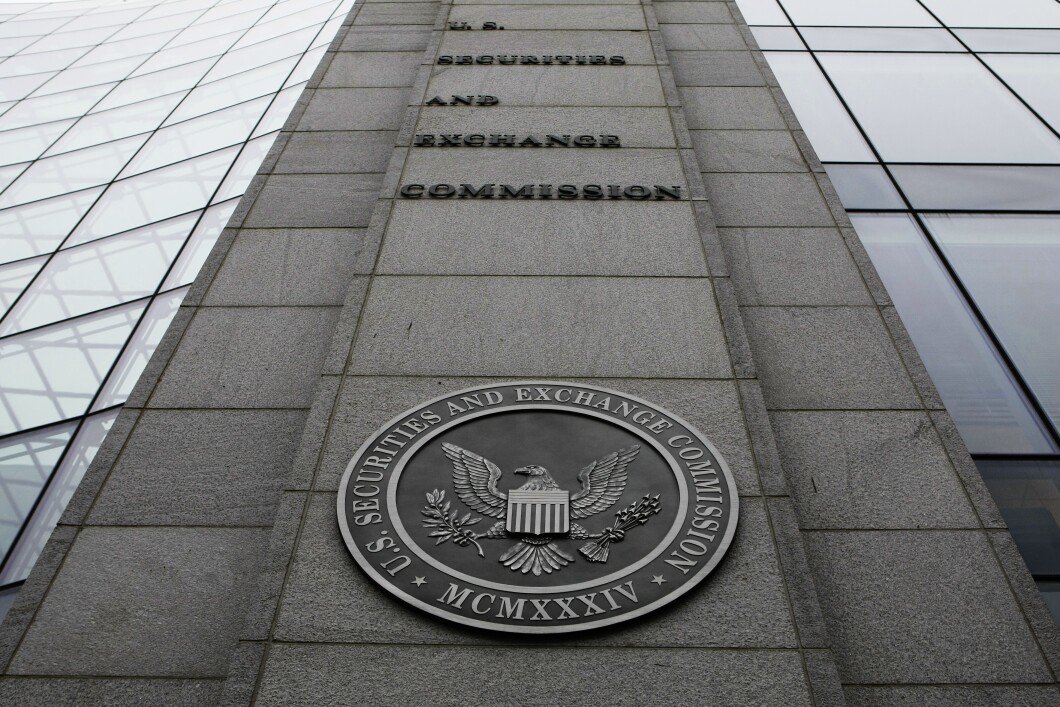
The Supreme Court is poised to consider a case this fall that raises constitutional questions over the use of in-house judges handling cases brought by the Securities and Exchange Commission.
Justices will hear the Biden administration‘s appeal that argues a U.S. 5th Circuit Court of Appeals ruling will have “massive” consequences across the federal government if it’s not reversed. The appeals court found in May 2022 that plaintiff George Jarkesy’s constitutional rights to a jury trial were violated, one month after the commission admitted in April last year that SEC personnel improperly accessed files in dozens of cases.
BIDEN FTC FACES LAWSUIT FOR SUPPRESSING ELON MUSK RECORDS

“The Court Of Appeals erred in holding that Congress violated the Seventh Amendment by authorizing the SEC to bring administrative proceedings seeking civil penalties,” according to a petition from the Justice Department asking the Supreme Court to reverse the 5th Circuit’s ruling.
The case, Jarkesy v. SEC, involves a Texas-based hedge fund manager and conservative talk radio host, Jarkesy, who the SEC alleges inflated the value of some of his assets and made false claims, which he denies. The SEC prosecuted him through its internal, juryless adjudication process in which an SEC-appointed administrative law judge weighed the validity of the evidence against him, which Jarkesy said violated his 7th Amendment right to a jury trial. The commission retains roughly a dozen administrative law judges that hear hundreds of cases per year.
Critics of the in-house proceedings argue that the SEC is operating not only as a prosecutor but also serving as the judge and jury and that their cases should be sent to an actual U.S. court. Those allegations are compounded because the commission admitted the improper file sharing also occurred in Jarkesy’s case, and around 90 others, according to a late-afternoon statement from the SEC on June 2.
“It’s the equivalent of a party in litigation having access to a judge’s briefs from her law clerks,” Nick Morgan, an attorney at Paul Hastings LLP who represents defendants against the SEC, told the Wall Street Journal.
The problem was described by the SEC as a “control deficiency” that caused the improper file sharing, prompting the commission to dismiss 42 open cases, including many against small investment advisers. The commission preserved Jarkesy’s case because it had already closed when an ALJ ruled against him in 2014.
Just 28 days after dismissing the large bulk of cases, the Supreme Court agreed to consider SEC v. Jarkesy for the upcoming fall term, a move that Jarkesy’s counsel claims the commission “anticipated.”
The SEC “anticipated that the Supreme Court was going to soon grant cert and wanted to get out ahead of the Supreme Court merits briefing, to claim that the disclosure and mass case dismissal were by then ‘old news,'” Karen Cook, an attorney for Jarkesy, told the Washington Examiner.
Peggy Little, a senior litigator at the New Civil Liberty Alliance, told the Washington Examiner she believes the commission’s mass dismissal of the cases in June was a “pretext.
“It gave them an excuse to eviscerate the ability of the defendants in the 42 open cases to make court challenges, and it also took away their rights to discovery in court on the control deficiency,” Little said. “If this misconduct justifies wiping the administrative docket clean, it makes no sense to treat George Jarkesy any differently than the more than ninety cases tainted by the SEC control deficiency.”
Jarkesy’s in-house trial dates back to 2014, when an ALJ found he made misrepresentations tied to his investment fund and consequently imposed an industry and penny stock bar on Jarkesy, prompting him to appeal to the 5th Circuit, which in May 2022 vacated the SEC’s decision.
The commission has stressed it didn’t find evidence of its in-house prosecutors achieving any unfair advantage from the information. A House Committee on Financial Services hearing from July 19, 2022, highlighted that the control deficiency originated back in 2017, was discovered by the commission in 2021, and wasn’t publicly reported until April the next year. The Washington Examiner reached out to the SEC Office of the Inspector General for a response.
The SEC’s adjudication model didn’t attract controversy for years, not until Congress in 2010 gave the commission the power to use them in cases against broader groups of defendants with the passage of the Dodd–Frank Wall Street Reform and Consumer Protection Act. The decision to increase the use of in-house trials throughout the last decade led to a wave of complaints about their fairness.
One complaint rose to the Supreme Court in 2018, when the justices ruled 7-2 in Lucia v. SEC that the commission’s ALJs were unconstitutionally appointed, holding that the SEC exercises enough power that they need to be directly appointed by commissioners. The ruling caused the commission to reconsider dozens of cases that had already been decided by ALJs.
On April 14 this year, the Supreme Court unanimously chipped away at the SEC’s powers in the consolidated Axon/Cochran case, holding that constitutional challenges can be brought to federal courts before the SEC’s targets had to undergo in-house proceedings.
Solicitor General Elizabeth Prelogar, the Biden administration’s top Supreme Court litigator, is representing the SEC in the upcoming Jarkesy case. She argues that Congress can authorize an agency to handle certain types of cases in-house rather than shifting to federal court, where the 7th Amendment jury trial right would be applicable.
“Congress has left it to the SEC to decide, in each case, whether to bring a civil action, an agency proceeding, neither, or both,” Prelogar wrote in the government’s petition, adding that the SEC “exercises only enforcement discretion — a classic executive power.”
CLICK HERE TO READ MORE FROM THE WASHINGTON EXAMINER
The justices have ruled in several recent cases against administrative agencies for overstepping authority and violating separations of powers, giving them another chance to curb administrative state powers.
An argument date has not been scheduled for the case and a decision is likely to come before July of next year.





